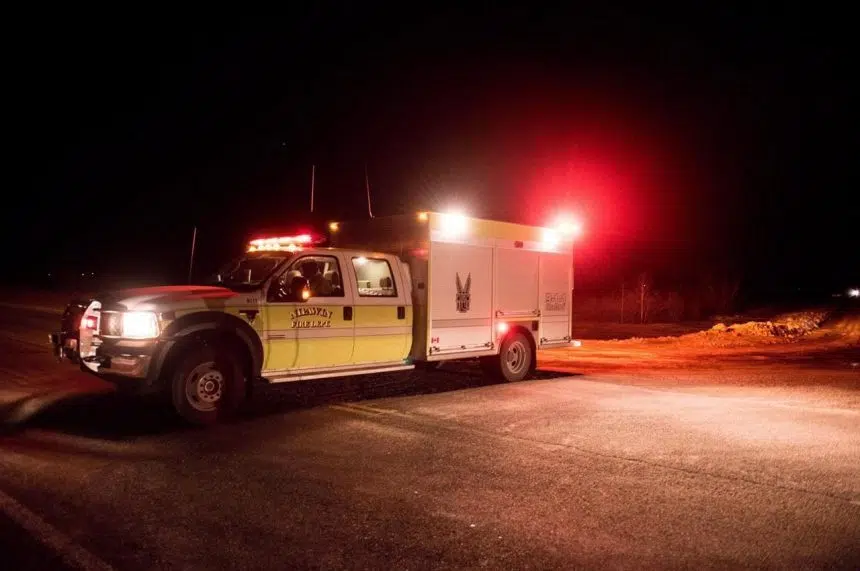WASKESIU, Sask. — Paramedic Deanndra King was on a day off, getting ready for a weekend curling bonspiel, when she got the call from her boss about an accident involving a bus.
“I didn’t register the magnitude of it,” the first responder from Nipawin, Sask., recalled this week.
She rushed to the scene where dozens of emergency workers — including paramedics, firefighters and police officers — did their jobs and tried to save lives. People from nearby farms brought blankets and helped in any way they could.
A semi-truck and a bus carrying the Humboldt Broncos junior hockey team to a playoff game in Nipawin had collided. Sixteen people on the bus, including 10 players, would die as a result. Another 13 players were injured.
“It was unimaginable, really. Nothing you can prepare for mentally or physically,” said King. “It was pretty much on autopilot. You just go in and do your job. That’s all you can think of at the time.
“Afterward, it all hit.”
First responders to the horrific crash April 6 said they received immediate counselling on signs of post-traumatic stress — and some got a much-needed break from it all this week when they attended a Wounded Warriors Canada program in Waskesiu, Sask., a resort community in Prince Albert National Park
“These are individuals who are from a very isolated part of the country with negligible resources,” said Phil Ralph, national program director with Wounded Warriors. “First responders respond to tragedies and situations across the country that can impact them significantly each and every day.”
The privately funded organization honours and supports ill and injured Canadian Armed Forces members, veterans, first responders and their families.
The program allowed about a dozen first responders to relax and interact with their families and others who were involved in the crash emergency response.
“There’s a lot of isolation that goes on,” said Ralph. “That’s one of the reasons that we have events like Tribute to Your Service so they know they are not unique. They are not alone.”
King’s colleague, Kyle Eastwood, attended with his girlfriend Gillian Hiebert, an emergency room nurse.
“It was a pretty relaxed itinerary. There wasn’t really any mandatory things for us to do,” he said. “It was quite relaxing and pretty nice.
“Our group of people who work in Nipawin are fairly tight-knit, so we stuck together and did the same activities.”
Hiebert, 27, said they golfed, rode horses and ate meals together.
“It was more relaxing and not doing anything except socializing,” said Hiebert, who worked with other nurses, doctors and staff at the Nipawin hospital on the night of the crash.
Eastwood, 29, said it was nice to take a break from the day-to-day, on-call shifts.
“We spend that time with our co-workers continuously,” he said. “To actually be able to spend a nice relaxing time with them outside of work was quite nice.”
His boss brought in paramedics from elsewhere to cover shifts, said Eastwood.
“It was about grounding ourselves and getting back to normal after everything that happened.”
Eastwood said the program helped promote good mental health by allowing people to just spend time with each other.
They said there wasn’t much talk about the day of the crash or how it affected their lives, but it’s not something they will forget.
“It was pretty much the worst you can imagine,” said Eastwood.
“It was just awful for everybody,” added Hiebert. “Nobody should go through that and nobody is expecting to go through that again.”
There was an outpouring of support for anyone connected to the crash. Wounded Warriors Canada immediately set up the Humboldt First Responder Fund, which raised almost $200,000 for support programs such as the one held in Saskatchewan this week.
— By Colette Derworiz in Edmonton
The Canadian Press







